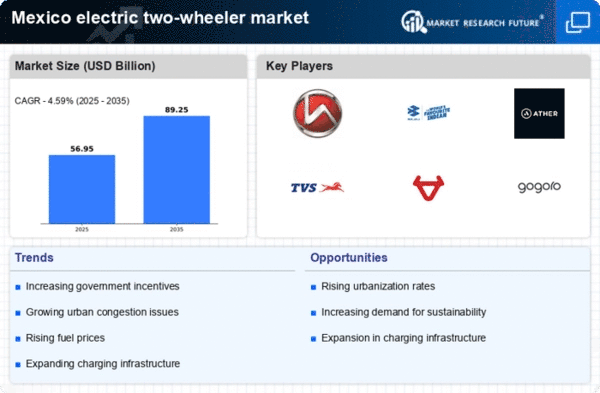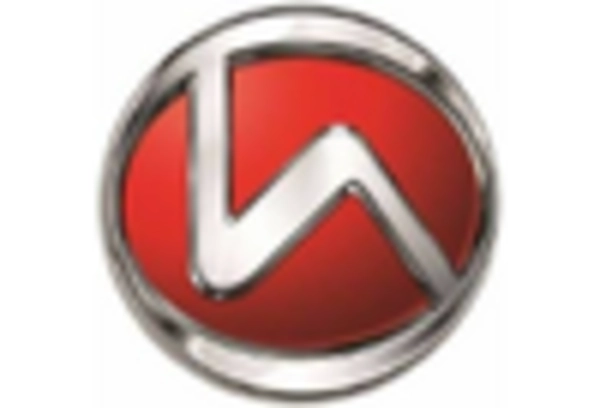Rising Fuel Prices
The escalating prices of fossil fuels in Mexico are driving consumers towards more economical alternatives, such as electric two-wheelers. As traditional fuel costs continue to rise, the electric two-wheeler market becomes increasingly attractive due to its lower operational costs. In 2025, the average price of gasoline has surged by approximately 15%, prompting consumers to seek cost-effective transportation solutions. This shift is likely to enhance the appeal of electric two-wheelers, which offer significant savings on fuel expenses. Furthermore, the electric two-wheeler market is expected to benefit from this trend, as more individuals opt for electric models to mitigate the financial burden of rising fuel prices.
Urbanization Trends
Rapid urbanization in Mexico is reshaping transportation needs and preferences, thereby impacting the electric two-wheeler market. As cities expand and populations grow, traffic congestion becomes a pressing issue. Electric two-wheelers offer a practical solution for navigating crowded urban environments, providing flexibility and ease of movement. In 2025, urban areas are projected to account for over 75% of the population, further increasing the demand for efficient transportation options. The electric two-wheeler market stands to gain from this trend, as more urban dwellers seek compact and agile vehicles to address their commuting challenges.
Environmental Awareness
Growing environmental consciousness among the Mexican population is significantly influencing the electric two-wheeler market. As awareness of climate change and air pollution increases, consumers are more inclined to choose eco-friendly transportation options. The electric two-wheeler market is poised to capitalize on this trend, as electric vehicles produce zero tailpipe emissions, contributing to cleaner air quality. Surveys indicate that over 60% of potential buyers express a preference for electric vehicles due to their environmental benefits. This shift in consumer mindset is likely to drive demand for electric two-wheelers, as individuals seek to reduce their carbon footprint and support sustainable practices.
Government Regulations on Emissions
Stringent government regulations aimed at reducing vehicular emissions are fostering growth in the electric two-wheeler market. In Mexico, authorities have implemented policies that encourage the adoption of low-emission vehicles, including electric two-wheelers. These regulations are likely to become more rigorous, with targets set for reducing greenhouse gas emissions by 30% by 2030. As a result, the electric two-wheeler market is expected to thrive, as manufacturers and consumers align with these environmental goals. The push for compliance with emission standards is likely to accelerate the transition towards electric mobility solutions.
Technological Innovations in Battery Technology
Advancements in battery technology are playing a crucial role in the evolution of the electric two-wheeler market. Innovations such as improved energy density and faster charging capabilities are enhancing the performance and appeal of electric two-wheelers. In 2025, the average range of electric two-wheelers is expected to exceed 100 km on a single charge, addressing one of the primary concerns of potential buyers. The electric two-wheeler market is likely to benefit from these technological improvements, as they contribute to greater consumer confidence and satisfaction. Enhanced battery life and efficiency may lead to increased adoption rates, further propelling market growth.
















